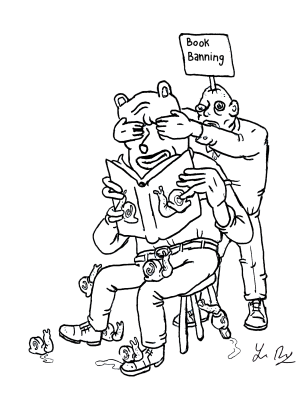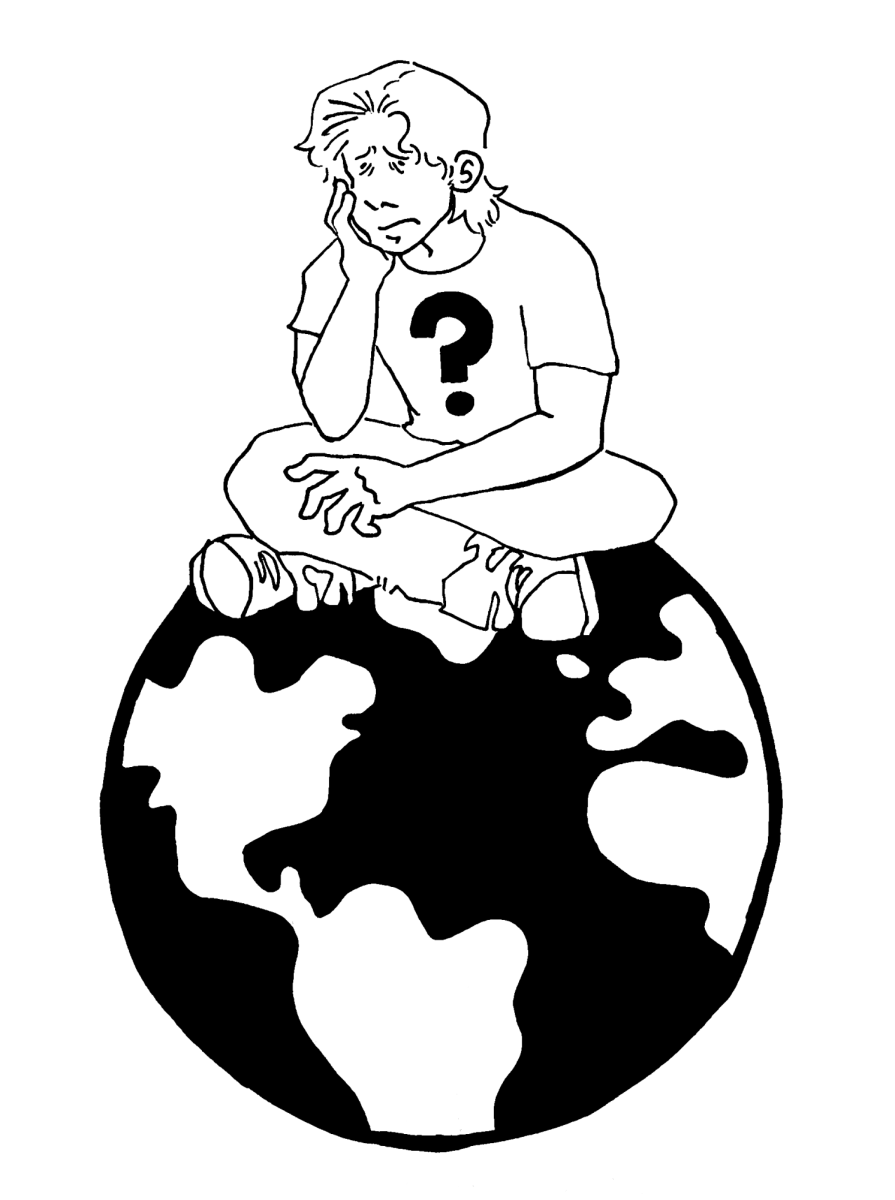Censorship in high schools prevents necessary discussions and learning
Lena Bowe, Opinions Editor
Originally published December 18, 2015
“The Adventures of Huckleberry Finn” is simultaneously one of the most beloved and controversial books in American literature. Due to its depiction of slavery and repeated use of racial slurs, the decision to use it as teaching material in high school is often challenged. As of 2009, “The Adventures of Huckleberry Finn” is #14 on the American Library Association’s Top 100 Banned/Challenged Books.
Other classic novels have been challenged for similar reasons. “The Great Gatsby” has been banned for its portrayal of drinking and sexual references. “The Catcher in the Rye” — which features a teenage protagonist — has been removed from high school classrooms for being “unacceptable,” “obscene” and “foul.”
Many advocates for book banning claim that teenagers are simply not ready to engage in discussion about topics like racism, sex and substance abuse, and suggest that the study of these books be restricted to the college level.
It is ridiculous to use lack of maturity as a reason to avoid the teaching of certain texts in high school when students are experiencing the very things that the texts are banned for.
According to ProPublica, young black men are 21 times more likely to be shot by police than their white counterparts. In 2014, 19.4 percent of high school seniors reported weekly binge drinking (National Institute on Drug Abuse). Forty-four percent of sexual assault victims are under 18 (RAINN).
Schools should provide a safe space for teenagers to discuss their issues instead of blindly ignoring the fact that said issues exist in the first place.
By banning the teaching of books like “Huck Finn,” teachers and administrators are telling students, “You may be experiencing these things on a daily basis, but you’re not mature enough to talk about them yet.”
Frequently banned novels don’t just contain important material for discussion, many of them are also stellar examples of literature. Books like “Huck Finn,” “The Catcher in the Rye” and “The Great Gatsby” are so loved because they contain realistic characters and interesting stories, not because they were carefully written to avoid controversy.
We can relate to Huck’s tumultuous relationship with his father, we can relate to the excitement over Gatsby’s spectacular parties and we can relate to Holden Caulfield’s frustration with the world around him. The novels just wouldn’t be as powerful if Huck and his father had a healthy, loving relationship, Gatsby only served virgin drinks and Holden avoided using profanity whenever he felt particularly moody.
During high school, it’s more important than ever for students to engage in discussion, especially when it comes to issues that are relevant to their lives. Teenagers will be faced with hardships for the rest of their lives, and attempting to shield them until they formally reach adulthood does no good.
Reading and discussing controversial books helps high schoolers develop critical thinking skills and provides a foundation of knowledge on the world around them — which, despite what adults think, they do in fact live in.

























